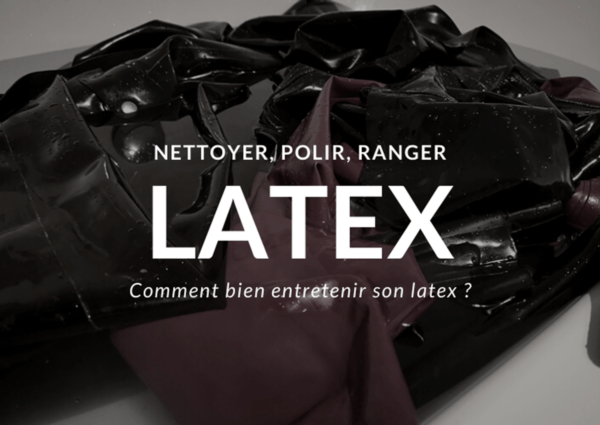A covered entity may also disclose PHI to aid in TPO, which is the acronym for "Treatment, Payment and Health Care Operations". 1320d-5.89 Pub. Health Care Clearinghouses. Frequently Asked Questions for Professionals- Please see the HIPAA FAQs for additional guidance on health information privacy topics. For non-routine, non-recurring disclosures, or requests for disclosures that it makes, covered entities must develop criteria designed to limit disclosures to the information reasonably necessary to accomplish the purpose of the disclosure and review each of these requests individually in accordance with the established criteria. A covered entity may not retaliate against a person for exercising rights provided by the Privacy Rule, for assisting in an investigation by HHS or another appropriate authority, or for opposing an act or practice that the person believes in good faith violates the Privacy Rule.73 A covered entity may not require an individual to waive any right under the Privacy Rule as a condition for obtaining treatment, payment, and enrollment or benefits eligibility.74, Documentation and Record Retention. A covered entity must notify the Secretary if it discovers a breach of unsecured protected health information. Organizational groups and regulations that affect medical records. Affiliated Covered Entity. Protected health information (PHI) under U.S. law is any information about health status, provision of health care, or payment for health care that is created or collected by a Covered Entity (or a Business Associate of a Covered Entity), and can be linked to a specific individual. In addition, protected health information may be disclosed for notification purposes to public or private entities authorized by law or charter to assist in disaster relief efforts. A clinically-integrated setting where individuals typically receive health care from more. Ron Kennedy - a psychiatrist who runs an anti-aging clinic. 164.501 and 164.508(a)(3).50 45 C.F.R. Preemption. An authorization is not required to use or disclose protected health information for certain essential government functions. Covered entities that fail to comply voluntarily with the standards may be subject to civil money penalties. A covered entity can be the business associate of another covered entity. Before OCR imposes a penalty, it will notify the covered entity and provide the covered entity with an opportunity to provide written evidence of those circumstances that would reduce or bar a penalty. Has as its principal purpose the regulation of the manufacture, registration, distribution, dispensing, or other control of any controlled substances (as defined in 21 U.S.C. The Privacy Rule excludes from protected health information employment records that a covered entity maintains in its capacity as an employer and education and certain other records subject to, or defined in, the Family Educational Rights and Privacy Act, 20 U.S.C. A hospital may use protected health information about an individual to provide health care to the individual and may consult with other health care providers about the individual's treatment. Kenneth Stoller. A covered health care provider may rely on an individual's informal permission to list in its facility directory the individual's name, general condition, religious affiliation, and location in the provider's facility.25 The provider may then disclose the individual's condition and location in the facility to anyone asking for the individual by name, and also may disclose religious affiliation to clergy. A covered entity may disclose protected health information to the individual who is the subject of the information. See additional guidance on Notice. 802), or that is deemed a controlled substance by State law. > HIPAA Home Members of the clergy are not required to ask for the individual by name when inquiring about patient religious affiliation. 164.408. a notable exclusion of protected health information is quizlet This information is called protected health information (PHI), which is generally individually identifiable health information that is transmitted by, or maintained in, electronic media or any other form or medium. 160.203.86 45 C.F.R. (2) Treatment, Payment, Health Care Operations. The Privacy Rule identifies relationships in which participating covered entities share protected health information to manage and benefit their common enterprise as "organized health care arrangements. See additional guidance on Incidental Uses and Disclosures. In general, a business associate is a person or organization, other than a member of a covered entity's workforce, that performs certain functions or activities on behalf of, or provides certain services to, a covered entity that involve the use or disclosure of individually identifiable health information. Covered entities must act in accordance with their notices. The notice must include a point of contact for further information and for making complaints to the covered entity. A group health plan and the health insurer or HMO offered by the plan may disclose the following protected health information to the "plan sponsor"the employer, union, or other employee organization that sponsors and maintains the group health plan:83, Other Provisions: Personal Representatives and Minors. sample business associate contract language. L. 104-191; 42 U.S.C. In addition, preemption of a contrary State law will not occur if HHS determines, in response to a request from a State or other entity or person, that the State law: Enforcement and Penalties for Noncompliance. Two types of government-funded programs are not health plans: (1) those whose principal purpose is not providing or paying the cost of health care, such as the food stamps program; and (2) those programs whose principal activity is directly providing health care, such as a community health center,5 or the making of grants to fund the direct provision of health care. Federal Confidentiality Law: HIPAA. Therefore the flexibility and scalability of the Rule are intended to allow covered entities to analyze their own needs and implement solutions appropriate for their own environment. by . A covered entity must designate a privacy official responsible for developing and implementing its privacy policies and procedures, and a contact person or contact office responsible for receiving complaints and providing individuals with information on the covered entity's privacy practices.65, Workforce Training and Management. 160.103.13 45 C.F.R. De-Identified Health Information. A covered entity that does not make this designation is subject in its entirety to the Privacy Rule. Covered entities must establish and implement policies and procedures (which may be standard protocols) for routine, recurring disclosures, or requests for disclosures, that limits the protected health information disclosed to that which is the minimum amount reasonably necessary to achieve the purpose of the disclosure. The best way to protect yourself against this possibility is to make sure you verify the source before sharing your personal or medical information. Health Plans. A covered entity that performs multiple covered functions must operate its different covered functions in compliance with the Privacy Rule provisions applicable to those covered functions.82 The covered entity may not use or disclose the protected health information of an individual who receives services from one covered function (e.g., health care provider) for another covered function (e.g., health plan) if the individual is not involved with the other function. Health plans also include employer-sponsored group health plans, government and church-sponsored health plans, and multi-employer health plans. For internal uses, a covered entity must develop and implement policies and procedures that restrict access and uses of protected health information based on the specific roles of the members of their workforce. Required by Law. "78) To be a hybrid entity, the covered entity must designate in writing its operations that perform covered functions as one or more "health care components." 164.530(i).65 45 C.F.R. Every health care provider, regardless of size, who electronically transmits health information in connection with certain transactions, is a covered entity. "Individually identifiable health information" is information, including demographic data, that relates to: and that identifies the individual or for which there is a reasonable basis to believe it can be used to identify the individual.13 Individually identifiable health information includes many common identifiers (e.g., name, address, birth date, Social Security Number). 45 C.F.R. 45 C.F.R. Compliance. An authorization for marketing that involves the covered entity's receipt of direct or indirect remuneration from a third party must reveal that fact. A covered entity must obtain the individual's written authorization for any use or disclosure of protected health information that is not for treatment, payment or health care operations or otherwise permitted or required by the Privacy Rule.44 A covered entity may not condition treatment, payment, enrollment, or benefits eligibility on an individual granting an authorization, except in limited circumstances.45. following direct identifiers of the individual or of relatives, employers, or household members of Covered entities may disclose protected health information to health oversight agencies (as defined in the Rule) for purposes of legally authorized health oversight activities, such as audits and investigations necessary for oversight of the health care system and government benefit programs.32, Judicial and Administrative Proceedings. Criminal Penalties. ", https://www.federalregister.gov/documents/2019/04/30/2019-08530/enforcement-discretion-regarding-hipaa-civil-money-penalties, Frequently Asked Questions for Professionals, The Health Insurance Portability and Accountability Act of 1996 (HIPAA), Public Law 104-191, was enacted on August 21, 1996. Group Health Plan disclosures to Plan Sponsors. Si continas usando este sitio, asumiremos que ests de acuerdo con ello. For help in determining whether you are covered, use CMS's decision tool. HIPAA applies to physicians and other individual and institutional health care providers (e.g., dentists, psychologists, hospitals, clinics, pharmacies, etc.). 1320d-6.90 45 C.F.R. Business Associate Contract. In March 2002, the Department proposed and released for public comment modifications to the Privacy Rule. 164.534.91 45 C.F.R. Tier 3: Obtaining PHI for personal gain or with malicious intent - Up to 10 years in jail. U.S. Department of Health & Human Services Covered entities may disclose protected health information in a judicial or administrative proceeding if the request for the information is through an order from a court or administrative tribunal.
Medications That Affect Eyelash Extensions,
Lakeside Shooting Today,
North Wales Police Wanted List,
Articles A





